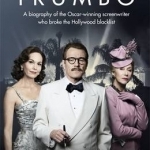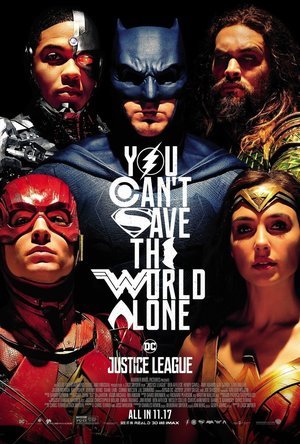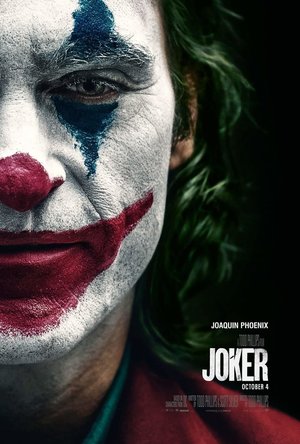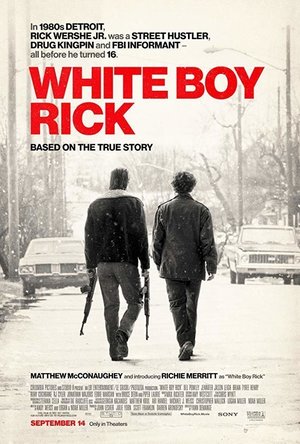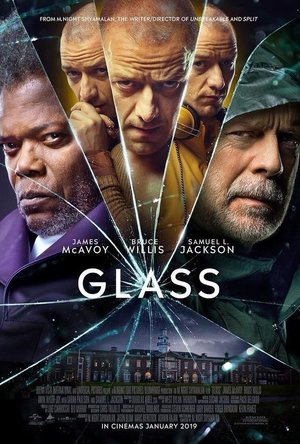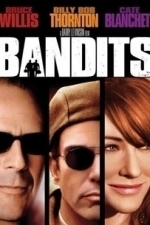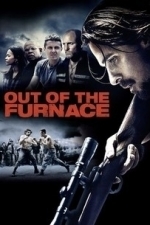Search
Search results

Thai Boxing For You: Fight, Self Defense System
Sports and Health & Fitness
App
Thai Boxing For You - the best Muay Thai app in the App Store I'm sure everyone knows the names of...
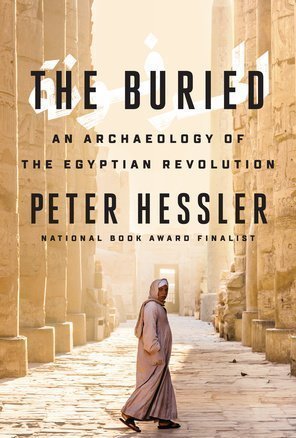
The Buried: An Archaeology of the Egyptian Revolution
Book
From the acclaimed author of River Town and Oracle Bones, an intimate excavation of life in one of...
Film tie-in
I received this book for free through Goodreads First Reads.
Nominated for an Oscar, BAFTA and Golden Globe,Trumbo is a recent film based on the original biography Dalton Trumbo written by Bruce Cook in 1977. Its adaptation to film provided the perfect opportunity to republish this extremely well researched book. With a forward written by John McNamara, the screenwriter of the motion picture, the story of Dalton Trumbo’s life is just as intriguing as it was almost forty years ago. But who is Trumbo?
If, like me, you have never heard of Trumbo or even the infamous “Hollywood Ten,” it may take a while for it to become clear as to why it was worth Cook’s time to produce a book about the man. Dalton Trumbo was a well-known screenwriter of films such as Papillon, Lonely Are The Brave and Roman Holiday as well as author of the novel Johnny Got His Gun. However these are not all he is famous for. During his life, Trumbo became a member of the Communist Party, which Hollywood branded as an Un-American Activity and thus blacklisted him, as well as other screenwriters, directors and actors. Ten of these men, Trumbo included, were imprisoned for their political beliefs – yet nothing prevented Trumbo from continuing his fairly successful career.
Interestingly, Cook begins the book with the final stages of Trumbo’s life. At time of writing Trumbo was still alive, although rather poorly. After contracting lung cancer, having a lung removed, and suffering a heart attack, Trumbo was a very sick man; nonetheless he was still enthusiastic about being interviewed and telling his personal story.
From his childhood, to his evening shifts at a bakery, Cook details Trumbo’s early life, emphasizing the hard upbringing he had before he found himself in the world of Hollywood. Although roughly 75% of the book focuses on Trumbo’s career, Cook highlights Trumbo as a family man, with both a wife and three children who he absolutely adores.
Cook constantly refers to the Hollywood Ten as a concept that the reader should already be familiar with. Granted, someone who picks up this book is more likely to do so having a prior interest in the central figure, and thus already know about his background; however those ignorant on the topic eventually gather a better understanding on the topic once reaching the relevant chapters. It also becomes clearer why Trumbo is worth reading/writing about – he may have been blacklisted, but he managed to break through all the barriers and reinstate his name and many others.
Reading this half a century after the event, it seems strange that Trumbo was imprisoned. He had not done anything intrinsically wrong, it was purely prejudice against his political beliefs that got him into the mess he found himself. But when you consider the events of the time: World War Two, the Cold War, the Korean War, and Vietnam; it is understandable why many feared those who claimed to be Communists.
Cook’s narrative does not flow as a story, and much of it is broken up with quotes from various people he interviewed. The timeline jumps about between past and present (1970s), which occasionally gets a bit confusing. A large part of the book is spent analyzing many of Trumbo’s works – both for screen and written formats – which, unless you have a particular interest, can be a little tedious.
It has got to be said that Bruce Cook was an exemplary writer with a great eye for detail. He did not jump to conclusions or only talk about things from his point of view. Instead he interviewed, what seems like, everyone who ever met Trumbo, and based his writing on fact backed up with numerous quotes and citations.
This edition of Trumbo contains a selection of photographs taken on the set of the movie. Disappointingly it does not contain any of Trumbo himself – you would think that some photos could have been tracked down!
Trumbo is not a book that will interest everyone. Most people today – particularly in England – will probably be unaware of who Dalton Trumbo was, and thus would only seek out this publication due to a fascination with film production. I have not seen the film, but after reading this and discovering how books go from novels, to screenplays to moving image, it would be interesting to find out which parts of Trumbo’s life made it onto the big screen.
Nominated for an Oscar, BAFTA and Golden Globe,Trumbo is a recent film based on the original biography Dalton Trumbo written by Bruce Cook in 1977. Its adaptation to film provided the perfect opportunity to republish this extremely well researched book. With a forward written by John McNamara, the screenwriter of the motion picture, the story of Dalton Trumbo’s life is just as intriguing as it was almost forty years ago. But who is Trumbo?
If, like me, you have never heard of Trumbo or even the infamous “Hollywood Ten,” it may take a while for it to become clear as to why it was worth Cook’s time to produce a book about the man. Dalton Trumbo was a well-known screenwriter of films such as Papillon, Lonely Are The Brave and Roman Holiday as well as author of the novel Johnny Got His Gun. However these are not all he is famous for. During his life, Trumbo became a member of the Communist Party, which Hollywood branded as an Un-American Activity and thus blacklisted him, as well as other screenwriters, directors and actors. Ten of these men, Trumbo included, were imprisoned for their political beliefs – yet nothing prevented Trumbo from continuing his fairly successful career.
Interestingly, Cook begins the book with the final stages of Trumbo’s life. At time of writing Trumbo was still alive, although rather poorly. After contracting lung cancer, having a lung removed, and suffering a heart attack, Trumbo was a very sick man; nonetheless he was still enthusiastic about being interviewed and telling his personal story.
From his childhood, to his evening shifts at a bakery, Cook details Trumbo’s early life, emphasizing the hard upbringing he had before he found himself in the world of Hollywood. Although roughly 75% of the book focuses on Trumbo’s career, Cook highlights Trumbo as a family man, with both a wife and three children who he absolutely adores.
Cook constantly refers to the Hollywood Ten as a concept that the reader should already be familiar with. Granted, someone who picks up this book is more likely to do so having a prior interest in the central figure, and thus already know about his background; however those ignorant on the topic eventually gather a better understanding on the topic once reaching the relevant chapters. It also becomes clearer why Trumbo is worth reading/writing about – he may have been blacklisted, but he managed to break through all the barriers and reinstate his name and many others.
Reading this half a century after the event, it seems strange that Trumbo was imprisoned. He had not done anything intrinsically wrong, it was purely prejudice against his political beliefs that got him into the mess he found himself. But when you consider the events of the time: World War Two, the Cold War, the Korean War, and Vietnam; it is understandable why many feared those who claimed to be Communists.
Cook’s narrative does not flow as a story, and much of it is broken up with quotes from various people he interviewed. The timeline jumps about between past and present (1970s), which occasionally gets a bit confusing. A large part of the book is spent analyzing many of Trumbo’s works – both for screen and written formats – which, unless you have a particular interest, can be a little tedious.
It has got to be said that Bruce Cook was an exemplary writer with a great eye for detail. He did not jump to conclusions or only talk about things from his point of view. Instead he interviewed, what seems like, everyone who ever met Trumbo, and based his writing on fact backed up with numerous quotes and citations.
This edition of Trumbo contains a selection of photographs taken on the set of the movie. Disappointingly it does not contain any of Trumbo himself – you would think that some photos could have been tracked down!
Trumbo is not a book that will interest everyone. Most people today – particularly in England – will probably be unaware of who Dalton Trumbo was, and thus would only seek out this publication due to a fascination with film production. I have not seen the film, but after reading this and discovering how books go from novels, to screenplays to moving image, it would be interesting to find out which parts of Trumbo’s life made it onto the big screen.
Movie Metropolis (309 KP) rated Justice League (2017) in Movies
Jun 10, 2019
Hoorah, it's not a total dud
The entire production of Justice League has been enveloped in the tragedy surrounding director Zack Snyder’s sudden departure from the project in March this year.
After losing his daughter, Autumn, to suicide, the DC regular decided to hand over the reins of his passion project to Avengers director Joss Whedon so that he could spend time with his family. Whedon came on board and decided to undertake costly reshoots in order to get the film finished on time.
In that respect, it’s a miracle we’ve even got a Justice League movie in the first place. What’s even more of a miracle is that it turns out to be not rubbish – unfortunately that’s probably the biggest compliment I can give this frequently entertaining but messy outing for our favourite selection of DC Comic superheroes.
Fuelled by his restored faith in humanity and inspired by Superman’s (Henry Cavill) act of selflessness, Bruce Wayne (Ben Affleck) enlists newfound ally Diana Prince (Gal Gadot) to face an even greater threat. Together, Batman and Wonder Woman work quickly to recruit a team to stand against their newly awakened enemy, Steppenwolf. Despite the formation of an unprecedented league of heroes — Batman, Wonder Woman, Aquaman (Jason Momoa), Cyborg (Ray Fisher) and the Flash (Ezra Miller) – it may be too late to save the planet from an assault of catastrophic proportions.
This year’s Wonder Woman proved that the DC Universe can be at least a passable alternative to the might of Marvel and Batman v Superman: Dawn of Justice was an entertaining, if entirely forgettable mash up of the two titular heroes. Justice League sits somewhere in between – it’s not as much of an ordeal as BvS, but it’s also not as interesting as Wonder Woman. The less said about Suicide Squad, the better.
Acting wise, it’s a good start for the League. Ben Affleck is a cracking Bruce Wayne, but his Batman is lacking the gritty humanity of Christian Bale’s turn as the caped crusader. Ezra Miller, Jason Momoa and Ray Fisher all perform well with the former in particular being a highlight, but their rushed introductions do them no favours. However, the standout once again is the wonderful Gal Gadot. Her selfless Diana Prince really is magnificent and her increased screen-time in Justice League when compared to Batman v Superman is more than welcome.
Justice League is a film with a bit of an identity crisis as it frequently feels like a mishmash of scenes put together to make a film.
The main villain, Steppenwolf, voiced well by Ciarán Hinds is less successful. Masked behind walls of at-times poor CGI, his threat never feels truly realised and poor Hinds is wasted in a role reminiscent of the dreadful work 20th Century Fox did on Oscar Issac in X-Men: Apocalypse. He gets some good lines however, and makes for a decent, if unremarkable antagonist.
Amy Adams and Diane Lane are once again side-lined in their roles as Lois Lane and Martha Kent respectively. These incredible actresses really are wasted in roles that have little-to-no outcome to the plot. And this is a problem that has blighted the DCEU from the get-go. The calibre of actors used in these films is frankly, astounding and each one of them deserves better than the overly expositional and cringe worthy dialogue they continue to be lumped with.
The final act, like so many films before it, is a mess of ugly CGI that spoils a very decent middle section that has some truly poignant moments. The return of Superman (that isn’t a spoiler if you’ve been following the marketing for Justice League) is handled well and the moment he is reunited with his mother is touching and well-acted.
Justice League is a film with a bit of an identity crisis as it frequently feels like a mishmash of scenes put together to make a film. It’s also painfully obvious where Snyder’s very ‘operatic’ filming style is replaced with Joss Whedon’s trademark wit and this doesn’t sit well all of the time. It’s clear that a turbulent production has created a film that’s biggest merit is that it even managed to exist in the first place, and that’s a real shame. Entertaining? Yes. But entertainment can’t mask a film that reeks of mediocrity.
https://moviemetropolis.net/2017/11/19/justice-league-review/
After losing his daughter, Autumn, to suicide, the DC regular decided to hand over the reins of his passion project to Avengers director Joss Whedon so that he could spend time with his family. Whedon came on board and decided to undertake costly reshoots in order to get the film finished on time.
In that respect, it’s a miracle we’ve even got a Justice League movie in the first place. What’s even more of a miracle is that it turns out to be not rubbish – unfortunately that’s probably the biggest compliment I can give this frequently entertaining but messy outing for our favourite selection of DC Comic superheroes.
Fuelled by his restored faith in humanity and inspired by Superman’s (Henry Cavill) act of selflessness, Bruce Wayne (Ben Affleck) enlists newfound ally Diana Prince (Gal Gadot) to face an even greater threat. Together, Batman and Wonder Woman work quickly to recruit a team to stand against their newly awakened enemy, Steppenwolf. Despite the formation of an unprecedented league of heroes — Batman, Wonder Woman, Aquaman (Jason Momoa), Cyborg (Ray Fisher) and the Flash (Ezra Miller) – it may be too late to save the planet from an assault of catastrophic proportions.
This year’s Wonder Woman proved that the DC Universe can be at least a passable alternative to the might of Marvel and Batman v Superman: Dawn of Justice was an entertaining, if entirely forgettable mash up of the two titular heroes. Justice League sits somewhere in between – it’s not as much of an ordeal as BvS, but it’s also not as interesting as Wonder Woman. The less said about Suicide Squad, the better.
Acting wise, it’s a good start for the League. Ben Affleck is a cracking Bruce Wayne, but his Batman is lacking the gritty humanity of Christian Bale’s turn as the caped crusader. Ezra Miller, Jason Momoa and Ray Fisher all perform well with the former in particular being a highlight, but their rushed introductions do them no favours. However, the standout once again is the wonderful Gal Gadot. Her selfless Diana Prince really is magnificent and her increased screen-time in Justice League when compared to Batman v Superman is more than welcome.
Justice League is a film with a bit of an identity crisis as it frequently feels like a mishmash of scenes put together to make a film.
The main villain, Steppenwolf, voiced well by Ciarán Hinds is less successful. Masked behind walls of at-times poor CGI, his threat never feels truly realised and poor Hinds is wasted in a role reminiscent of the dreadful work 20th Century Fox did on Oscar Issac in X-Men: Apocalypse. He gets some good lines however, and makes for a decent, if unremarkable antagonist.
Amy Adams and Diane Lane are once again side-lined in their roles as Lois Lane and Martha Kent respectively. These incredible actresses really are wasted in roles that have little-to-no outcome to the plot. And this is a problem that has blighted the DCEU from the get-go. The calibre of actors used in these films is frankly, astounding and each one of them deserves better than the overly expositional and cringe worthy dialogue they continue to be lumped with.
The final act, like so many films before it, is a mess of ugly CGI that spoils a very decent middle section that has some truly poignant moments. The return of Superman (that isn’t a spoiler if you’ve been following the marketing for Justice League) is handled well and the moment he is reunited with his mother is touching and well-acted.
Justice League is a film with a bit of an identity crisis as it frequently feels like a mishmash of scenes put together to make a film. It’s also painfully obvious where Snyder’s very ‘operatic’ filming style is replaced with Joss Whedon’s trademark wit and this doesn’t sit well all of the time. It’s clear that a turbulent production has created a film that’s biggest merit is that it even managed to exist in the first place, and that’s a real shame. Entertaining? Yes. But entertainment can’t mask a film that reeks of mediocrity.
https://moviemetropolis.net/2017/11/19/justice-league-review/
My rating: 3.5
<i>I received this book for free through Goodreads First Reads.</i>
Nominated for an Oscar, BAFTA and Golden Globe, <i>Trumbo</i> is a recent film based on the original biography <i>Dalton Trumbo</i> written by Bruce Cook in 1977. Its adaptation to film provided the perfect opportunity to republish this extremely well researched book. With a forward written by John McNamara, the screenwriter of the motion picture, the story of Dalton Trumbo’s life is just as intriguing as it was almost forty years ago. But who is Trumbo?
If, like me, you have never heard of Trumbo or even the infamous “Hollywood Ten,” it may take a while for it to become clear as to why it was worth Cook’s time to produce a book about the man. Dalton Trumbo was a well-known screenwriter of films such as <i>Papillon, Lonely Are The Brave</i> and <i>Roman Holiday</i> as well as author of the novel <i>Johnny Got His Gun</i>. However these are not all he is famous for. During his life, Trumbo became a member of the Communist Party, which Hollywood branded as an Un-American Activity and thus blacklisted him, as well as other screenwriters, directors and actors. Ten of these men, Trumbo included, were imprisoned for their political beliefs – yet nothing prevented Trumbo from continuing his fairly successful career.
Interestingly, Cook begins the book with the final stages of Trumbo’s life. At time of writing Trumbo was still alive, although rather poorly. After contracting lung cancer, having a lung removed, and suffering a heart attack, Trumbo was a very sick man; nonetheless he was still enthusiastic about being interviewed and telling his personal story.
From his childhood, to his evening shifts at a bakery, Cook details Trumbo’s early life, emphasizing the hard upbringing he had before he found himself in the world of Hollywood. Although roughly 75% of the book focuses on Trumbo’s career, Cook highlights Trumbo as a family man, with both a wife and three children who he absolutely adores.
Cook constantly refers to the Hollywood Ten as a concept that the reader should already be familiar with. Granted, someone who picks up this book is more likely to do so having a prior interest in the central figure, and thus already know about his background; however those ignorant on the topic eventually gather a better understanding on the topic once reaching the relevant chapters. It also becomes clearer why Trumbo is worth reading/writing about – he may have been blacklisted, but he managed to break through all the barriers and reinstate his name and many others.
Reading this half a century after the event, it seems strange that Trumbo was imprisoned. He had not done anything intrinsically wrong, it was purely prejudice against his political beliefs that got him into the mess he found himself. But when you consider the events of the time: World War Two, the Cold War, the Korean War, and Vietnam; it is understandable why many feared those who claimed to be Communists.
Cook’s narrative does not flow as a story, and much of it is broken up with quotes from various people he interviewed. The timeline jumps about between past and present (1970s), which occasionally gets a bit confusing. A large part of the book is spent analyzing many of Trumbo’s works – both for screen and written formats – which, unless you have a particular interest, can be a little tedious.
It has got to be said that Bruce Cook was an exemplary writer with a great eye for detail. He did not jump to conclusions or only talk about things from his point of view. Instead he interviewed, what seems like, everyone who ever met Trumbo, and based his writing on fact backed up with numerous quotes and citations.
This edition of <i>Trumbo</i> contains a selection of photographs taken on the set of the movie. Disappointingly it does not contain any of Trumbo himself – you would think that some photos could have been tracked down!
<i>Trumbo</i> is not a book that will interest everyone. Most people today – particularly in England – will probably be unaware of who Dalton Trumbo was, and thus would only seek out this publication due to a fascination with film production. I have not seen the film, but after reading this and discovering how books go from novels, to screenplays to moving image, it would be interesting to find out which parts of Trumbo’s life made it onto the big screen.
<i>I received this book for free through Goodreads First Reads.</i>
Nominated for an Oscar, BAFTA and Golden Globe, <i>Trumbo</i> is a recent film based on the original biography <i>Dalton Trumbo</i> written by Bruce Cook in 1977. Its adaptation to film provided the perfect opportunity to republish this extremely well researched book. With a forward written by John McNamara, the screenwriter of the motion picture, the story of Dalton Trumbo’s life is just as intriguing as it was almost forty years ago. But who is Trumbo?
If, like me, you have never heard of Trumbo or even the infamous “Hollywood Ten,” it may take a while for it to become clear as to why it was worth Cook’s time to produce a book about the man. Dalton Trumbo was a well-known screenwriter of films such as <i>Papillon, Lonely Are The Brave</i> and <i>Roman Holiday</i> as well as author of the novel <i>Johnny Got His Gun</i>. However these are not all he is famous for. During his life, Trumbo became a member of the Communist Party, which Hollywood branded as an Un-American Activity and thus blacklisted him, as well as other screenwriters, directors and actors. Ten of these men, Trumbo included, were imprisoned for their political beliefs – yet nothing prevented Trumbo from continuing his fairly successful career.
Interestingly, Cook begins the book with the final stages of Trumbo’s life. At time of writing Trumbo was still alive, although rather poorly. After contracting lung cancer, having a lung removed, and suffering a heart attack, Trumbo was a very sick man; nonetheless he was still enthusiastic about being interviewed and telling his personal story.
From his childhood, to his evening shifts at a bakery, Cook details Trumbo’s early life, emphasizing the hard upbringing he had before he found himself in the world of Hollywood. Although roughly 75% of the book focuses on Trumbo’s career, Cook highlights Trumbo as a family man, with both a wife and three children who he absolutely adores.
Cook constantly refers to the Hollywood Ten as a concept that the reader should already be familiar with. Granted, someone who picks up this book is more likely to do so having a prior interest in the central figure, and thus already know about his background; however those ignorant on the topic eventually gather a better understanding on the topic once reaching the relevant chapters. It also becomes clearer why Trumbo is worth reading/writing about – he may have been blacklisted, but he managed to break through all the barriers and reinstate his name and many others.
Reading this half a century after the event, it seems strange that Trumbo was imprisoned. He had not done anything intrinsically wrong, it was purely prejudice against his political beliefs that got him into the mess he found himself. But when you consider the events of the time: World War Two, the Cold War, the Korean War, and Vietnam; it is understandable why many feared those who claimed to be Communists.
Cook’s narrative does not flow as a story, and much of it is broken up with quotes from various people he interviewed. The timeline jumps about between past and present (1970s), which occasionally gets a bit confusing. A large part of the book is spent analyzing many of Trumbo’s works – both for screen and written formats – which, unless you have a particular interest, can be a little tedious.
It has got to be said that Bruce Cook was an exemplary writer with a great eye for detail. He did not jump to conclusions or only talk about things from his point of view. Instead he interviewed, what seems like, everyone who ever met Trumbo, and based his writing on fact backed up with numerous quotes and citations.
This edition of <i>Trumbo</i> contains a selection of photographs taken on the set of the movie. Disappointingly it does not contain any of Trumbo himself – you would think that some photos could have been tracked down!
<i>Trumbo</i> is not a book that will interest everyone. Most people today – particularly in England – will probably be unaware of who Dalton Trumbo was, and thus would only seek out this publication due to a fascination with film production. I have not seen the film, but after reading this and discovering how books go from novels, to screenplays to moving image, it would be interesting to find out which parts of Trumbo’s life made it onto the big screen.
BankofMarquis (1832 KP) rated Joker (2019) in Movies
Oct 10, 2019
Joaquin's Performance Elevates This Film
Give Joaquin Phoenix the Oscar right now. His bravura performance as the titular character in JOKER is one for the ages. He is on the screen in every scene of this film and captivates and repulses you at the same time. This performance raises this film to another level.
The question is - what level was this film at, and where does this performance raise it to?
Set in Gotham City right around the time of the murder of Bruce Wayne's parents, JOKER tells the origin story of...well...a character that calls himself JOKER. This sad sack, with the name of Arthur Fleck, is a part-time clown (standing outside of store closings with a spinning sign or going to Children's Hospital). We watch his origins as he rises (or perhaps...falls?) to the anarchic symbol that is JOKER. And that's the interesting thing about this film. You are watching the fall of a man and the rise of a symbol - does Fleck find comfort or madness in this journey - or, perhaps, maybe he finds comfort in madness?
Embodying this broken spirit that keeps getting up despite whatever beatings (sometimes physical, sometimes mental, always with the potential to finally break him) is the unique talent that is Joaquin Phoenix. You can tell from his portrayal of Arthur that there is something just "off" with him and you continually wait for the breaking point that will drive him down the road of JOKER. But it is not only his acting that is on display here, it the manipulation and movements of his body that is amazing and outstanding. Much like a professional dancer, Phoenix/Fleck waltzes through this film like there is a musical score that only he can hear - and that is both fascinating and disturbing at the same time. There is a fine line that needs to be trod here, for if you don't, this character and performance can easily be one of total madness (a.k.a. Jack Nicholson as Jack Torrance in the SHINING) but Phoenix balances sanity/insanity very well and you are waiting for the final blow that will send him, inevitably, over the edge. It's like watching a ticking time bomb that you cannot see the clock counting down to zero - but count down to zero you are sure it will do.
Exchanging blows with Phoenix for about 1/3 of this film is Robert DeNiro as talk show host Murray Franklin (think a meaner version of Johnny Carson). DeNiro is VERY good in this role and it is good to see that he still can "bring it" as a serious actor when he wants to. Unfortunately, DeNiro's character isn't really in the first 2/3 of this film and that's too bad. Phoenix' Arthur Fleck is a force to be reckoned with and he really could have used another character just as strong to play against.
Unfortunately, Writer/Director Todd Phillips (THE HANGOVER films) doesn't really give Phoenix anyone strong to play against for the first 2/3 of this film though Frances Conroy (overbearing mother), Zazie Beetz (potential love interest) and Brett Cullen (billionaire Thomas Wayne, father of Bruce) come and go in all too brief appearances that never really are on screen long enough to stand their ground (though Conroy comes close). This makes the first part of this film very on-sided, dreary, depressing and dark. I get that Director/Writer Phillips was going for the "Decaying of Gotham" theme as seen through the eyes of Fleck, but it became a slog after awhile. I wanted to yell at the screen at about the 1 hour mark "All right, I get it!"
Now...to give Phillips credit, he creates an interesting version of this world that we all know well (through the Dark Knight and various other DC Universe films), so I give him points for originality. And...he really NAILS the ending (the last 1/3 of the film - the part WITH DeNiro). I thought it was effective and potent and left it's mark.
Which brings me back to my opening thought. Phoenix raises this film up with his performance - the question is "from where to where". I'd have to say (because of the slowness of the first 2/3 of this film) that Phoenix fearless performance raises this dark and dreary film from a "C" to a "B". So with that in mind, I give JOKER...
Letter Grade: B
7 (out of 10) stars and you can take that to the Bank(ofMarquis)
The question is - what level was this film at, and where does this performance raise it to?
Set in Gotham City right around the time of the murder of Bruce Wayne's parents, JOKER tells the origin story of...well...a character that calls himself JOKER. This sad sack, with the name of Arthur Fleck, is a part-time clown (standing outside of store closings with a spinning sign or going to Children's Hospital). We watch his origins as he rises (or perhaps...falls?) to the anarchic symbol that is JOKER. And that's the interesting thing about this film. You are watching the fall of a man and the rise of a symbol - does Fleck find comfort or madness in this journey - or, perhaps, maybe he finds comfort in madness?
Embodying this broken spirit that keeps getting up despite whatever beatings (sometimes physical, sometimes mental, always with the potential to finally break him) is the unique talent that is Joaquin Phoenix. You can tell from his portrayal of Arthur that there is something just "off" with him and you continually wait for the breaking point that will drive him down the road of JOKER. But it is not only his acting that is on display here, it the manipulation and movements of his body that is amazing and outstanding. Much like a professional dancer, Phoenix/Fleck waltzes through this film like there is a musical score that only he can hear - and that is both fascinating and disturbing at the same time. There is a fine line that needs to be trod here, for if you don't, this character and performance can easily be one of total madness (a.k.a. Jack Nicholson as Jack Torrance in the SHINING) but Phoenix balances sanity/insanity very well and you are waiting for the final blow that will send him, inevitably, over the edge. It's like watching a ticking time bomb that you cannot see the clock counting down to zero - but count down to zero you are sure it will do.
Exchanging blows with Phoenix for about 1/3 of this film is Robert DeNiro as talk show host Murray Franklin (think a meaner version of Johnny Carson). DeNiro is VERY good in this role and it is good to see that he still can "bring it" as a serious actor when he wants to. Unfortunately, DeNiro's character isn't really in the first 2/3 of this film and that's too bad. Phoenix' Arthur Fleck is a force to be reckoned with and he really could have used another character just as strong to play against.
Unfortunately, Writer/Director Todd Phillips (THE HANGOVER films) doesn't really give Phoenix anyone strong to play against for the first 2/3 of this film though Frances Conroy (overbearing mother), Zazie Beetz (potential love interest) and Brett Cullen (billionaire Thomas Wayne, father of Bruce) come and go in all too brief appearances that never really are on screen long enough to stand their ground (though Conroy comes close). This makes the first part of this film very on-sided, dreary, depressing and dark. I get that Director/Writer Phillips was going for the "Decaying of Gotham" theme as seen through the eyes of Fleck, but it became a slog after awhile. I wanted to yell at the screen at about the 1 hour mark "All right, I get it!"
Now...to give Phillips credit, he creates an interesting version of this world that we all know well (through the Dark Knight and various other DC Universe films), so I give him points for originality. And...he really NAILS the ending (the last 1/3 of the film - the part WITH DeNiro). I thought it was effective and potent and left it's mark.
Which brings me back to my opening thought. Phoenix raises this film up with his performance - the question is "from where to where". I'd have to say (because of the slowness of the first 2/3 of this film) that Phoenix fearless performance raises this dark and dreary film from a "C" to a "B". So with that in mind, I give JOKER...
Letter Grade: B
7 (out of 10) stars and you can take that to the Bank(ofMarquis)
BankofMarquis (1832 KP) rated White Boy Rick (2018) in Movies
Sep 17, 2018
Would have been better if at actually WAS a McConaughey flick
If you believe the advertisement for the latest Matthew McConaughey flick, WHITE BOY RICK, you would think that it is...well...a Mathew McConaughey flick.
And you would be wrong.
Set in the mid-1980's, WHITE BOY RICK tells the true tale of Richard Wershe, Jr. a youth who gets involved in drug trafficking and becomes an informant for the FBI and who...eventually...becomes the person who has been incarcerated for the longest time in Michigan for a non-violent crime.
Sounds intriguing enough you say. And the cast list says that McConaughey is starring as Richard Wershe, so that could be interesting.
But you would be wrong again.
McConaughey stars as Richard Wershe, SENIOR, the father of Richard Wershe, Jr. who is played by Richie Merritt, in his film debut - and that's the problem. The actor that might have made the slightness of the screen play and story interesting is sidelined as a minor, supporting character and the lead role - the role that is front and center for the ENTIRE film - is played by someone in his screen debut who brings nothing interesting to the role.
Director Yann Demage does a credible enough job moving the plot forward from event to event, but doesn't craft an over-arching storyline - or character transformation - that makes each of these individual scenes work with each other. It's a series of vignettes, but not a total movie - at least not a total, emotionally satisfying film.
McConaughey, of course, is the best thing in this film - he has the "low-life, struggling, white trash" persona perfected. But he is in the film not nearly enough and his "big" scenes aren't big enough to make his appearance in this film worthwhile.
Jennifer Jason Leigh, Bruce Dern and Piper Laurie are wasted in even smaller supporting roles and the other actors/characters are just forgettable faces in forgettable situations. Only Bel Powley as White Boy Rick's sister is interesting to watch and has a character worth remembering.
There is a good movie in here, I'm sure, this just isn't it. Disappointing would be the best word I would use for it.
Letter Grade C+ (for McConaughey and Powley's presence - and for the sure fun of seeing Dern and Laurie together on the screen).
5 (out of 10) stars and you can take that to the Bank (ofMarquis)
And you would be wrong.
Set in the mid-1980's, WHITE BOY RICK tells the true tale of Richard Wershe, Jr. a youth who gets involved in drug trafficking and becomes an informant for the FBI and who...eventually...becomes the person who has been incarcerated for the longest time in Michigan for a non-violent crime.
Sounds intriguing enough you say. And the cast list says that McConaughey is starring as Richard Wershe, so that could be interesting.
But you would be wrong again.
McConaughey stars as Richard Wershe, SENIOR, the father of Richard Wershe, Jr. who is played by Richie Merritt, in his film debut - and that's the problem. The actor that might have made the slightness of the screen play and story interesting is sidelined as a minor, supporting character and the lead role - the role that is front and center for the ENTIRE film - is played by someone in his screen debut who brings nothing interesting to the role.
Director Yann Demage does a credible enough job moving the plot forward from event to event, but doesn't craft an over-arching storyline - or character transformation - that makes each of these individual scenes work with each other. It's a series of vignettes, but not a total movie - at least not a total, emotionally satisfying film.
McConaughey, of course, is the best thing in this film - he has the "low-life, struggling, white trash" persona perfected. But he is in the film not nearly enough and his "big" scenes aren't big enough to make his appearance in this film worthwhile.
Jennifer Jason Leigh, Bruce Dern and Piper Laurie are wasted in even smaller supporting roles and the other actors/characters are just forgettable faces in forgettable situations. Only Bel Powley as White Boy Rick's sister is interesting to watch and has a character worth remembering.
There is a good movie in here, I'm sure, this just isn't it. Disappointing would be the best word I would use for it.
Letter Grade C+ (for McConaughey and Powley's presence - and for the sure fun of seeing Dern and Laurie together on the screen).
5 (out of 10) stars and you can take that to the Bank (ofMarquis)
Andy K (10823 KP) rated Glass (2019) in Movies
Aug 10, 2019
The Anti-Avengers!
Funny how director M. Night Shyamalan's career has gone. His first major hit blows everyone's minds with one of the most mind-bending plot twists ever captured on film (do you remember being mad at yourself you didn't figure it out).
Then he makes Unbreakable, a thinking man's superhero film which is just as good as The Sixth Sense, but does only modest box office. Then Sign and The Village (both decent, but a step down for sure) and then over 10 years of crap including Lady in the Water and The Happening.
In a strange move, he decides to write and direct a "sequel"? or another film in the same universe with Split which dos well with critics and audiences enough to warrant the 3rd film in the trilogy, Glass.
Train wreck survivor David Dunn is still the one man vigilante "Dark Knight" who lends a hand to the unfortunate when he comes across "The Horde". The two men end up being captured and incarcerated in a mental institution with Elijah Price, another man and David's former nemesis who is currently catatonic. The doctor in change says she has been given only 3 days to diagnose and treat the men before they are sentenced to life in an institution.
One of the men has an agenda which involves all three of them he wants to see played out and will go to any length to ensure its success. The lives of the men are intertwined in certain ways they themselves may not even be aware of.
I was worried when I started watching since I thought the first hour was VERY SLOW to develop with mostly just talking and plotting. Once thing finally get going and the men start interacting with each other it becomes way more interesting.
Good to see Bruce Willis back in a film which actually ran theatrically. He is showing signs of age, but still gives a great performance along with Samuel L. Jackson and James McAvoy.
The ending may not sit well with everyone since it may be considered atypical, but I thought it was fitting and didn't see it coming.
Here's to hoping a revitalized career for the film's interesting and entertaining filmmaker.
Then he makes Unbreakable, a thinking man's superhero film which is just as good as The Sixth Sense, but does only modest box office. Then Sign and The Village (both decent, but a step down for sure) and then over 10 years of crap including Lady in the Water and The Happening.
In a strange move, he decides to write and direct a "sequel"? or another film in the same universe with Split which dos well with critics and audiences enough to warrant the 3rd film in the trilogy, Glass.
Train wreck survivor David Dunn is still the one man vigilante "Dark Knight" who lends a hand to the unfortunate when he comes across "The Horde". The two men end up being captured and incarcerated in a mental institution with Elijah Price, another man and David's former nemesis who is currently catatonic. The doctor in change says she has been given only 3 days to diagnose and treat the men before they are sentenced to life in an institution.
One of the men has an agenda which involves all three of them he wants to see played out and will go to any length to ensure its success. The lives of the men are intertwined in certain ways they themselves may not even be aware of.
I was worried when I started watching since I thought the first hour was VERY SLOW to develop with mostly just talking and plotting. Once thing finally get going and the men start interacting with each other it becomes way more interesting.
Good to see Bruce Willis back in a film which actually ran theatrically. He is showing signs of age, but still gives a great performance along with Samuel L. Jackson and James McAvoy.
The ending may not sit well with everyone since it may be considered atypical, but I thought it was fitting and didn't see it coming.
Here's to hoping a revitalized career for the film's interesting and entertaining filmmaker.
Darren (1599 KP) rated Bandits (2001) in Movies
Jul 25, 2019
This is a film that I saw not long after it came out and didn’t recall much about it besides the fact that it starred Bruce Willis, Billy Bob Thornton and Cate Blanchett.
It’s actually quite a mediocre heist film since it tries much too hard to make this feel as if it’s story is one that could be “ripped from the headlines” and also feel pertinent to Reality TV, which was in its infancy at the time.
The chemistry between the characters is quite weak and the fact that Willis and Thornton don’t feel as if they are on level ground also hurts things since the characters are meant to be equal.
Blanchett’s character is quite annoying the whole way through and it’s pretty difficult to believe that she is able to have a romance with one of these men, and they want us to believe that she has one with both of them.
This love triangle just doesn’t work on any level.
The story itself is quite repetitive and they rehash things much too often instead of trying to break new ground along the way.
This film should have been much shorter and that might have been better if edited together.
The movie fails to decide whether it wants to be seen as a comedy or as a crime thriller and in the end it feels as if it is neither especially when there are too many scenes that play off as being overly melodramatic for their own good.
Bottom Line – Very mediocre heist film that tries too hard to feel as if it is “ripped from the headlines” during the beginning of the days of Reality TV. Willis and Thornton don’t work very well together because they never seem to feel as if their characters are on equal levels. Blanchett’s character is quite annoying throughout and its very hard to believe the love triangle that comes about. The story itself feels too repetitive and things could have been shortened a lot because they try to reestablish things that they previously established. The plot gets a bit too melodramatic for its own good and fails to make the decision of whether they want this to be seen as a comedy or as a crime thriller and in the end, it seems like neither.
It’s actually quite a mediocre heist film since it tries much too hard to make this feel as if it’s story is one that could be “ripped from the headlines” and also feel pertinent to Reality TV, which was in its infancy at the time.
The chemistry between the characters is quite weak and the fact that Willis and Thornton don’t feel as if they are on level ground also hurts things since the characters are meant to be equal.
Blanchett’s character is quite annoying the whole way through and it’s pretty difficult to believe that she is able to have a romance with one of these men, and they want us to believe that she has one with both of them.
This love triangle just doesn’t work on any level.
The story itself is quite repetitive and they rehash things much too often instead of trying to break new ground along the way.
This film should have been much shorter and that might have been better if edited together.
The movie fails to decide whether it wants to be seen as a comedy or as a crime thriller and in the end it feels as if it is neither especially when there are too many scenes that play off as being overly melodramatic for their own good.
Bottom Line – Very mediocre heist film that tries too hard to feel as if it is “ripped from the headlines” during the beginning of the days of Reality TV. Willis and Thornton don’t work very well together because they never seem to feel as if their characters are on equal levels. Blanchett’s character is quite annoying throughout and its very hard to believe the love triangle that comes about. The story itself feels too repetitive and things could have been shortened a lot because they try to reestablish things that they previously established. The plot gets a bit too melodramatic for its own good and fails to make the decision of whether they want this to be seen as a comedy or as a crime thriller and in the end, it seems like neither.
JT (287 KP) rated Out of the Furnace (2013) in Movies
Mar 10, 2020
Cast for so long in the trademark cowl of Batman and posing around Gotham City as the slightly disturbed and flamboyant billionaire Bruce Wayne, Christian Bale is back deep in his gritty acting roots.
Bale plays Pennsylvania steel mill worker Russell, a man living a simplistic hard working way of life. His brother on the other hand, Rodney (Casey Affleck), is back from a tour in Iraq. He’s visibly scared and not in the least bit interested in anymore manual labour. Inciting that the country owes him a something for his sacrifice he gets into debt gambling and desperate for cash to pay off his short fall he takes bare knuckle fist fights organised by loan shark friend John Petty Willem Dafoe.
Things move from bad to worse in a surprise addition to the plot, which sees Russell endure some time behind bars and in the process loses his sick father as well as seeing girlfriend Lena (Zoe Saldana) fall into the arms of local cop Forest Whitaker. When Russell steps outside of prison for the first time he has yet another problem facing him, in the form of local drug kingpin and all round nasty, Harlan DeGroat brilliantly played by Woody Harrelson.
DeGroat is not one to be crossed as even the local police keep their distance but Rodney heads straight into the lion’s den when he accepts a fight and then is propositioned to take a dive during it; something that he is not willing to do.
The relationship between the brothers is enthralling and totally believable. Both Bale and Affleck give controlled and sharp performances feeding off each other as the tension between them rises. The film attempts to broach the subject of the working classes, while at the same time portraying the life of the retired marine who has come back home full of nightmares and is left forgotten only to crumble into himself.
It’s a strong cast, with Harrelson’s villain commanding the screen with gusto while the likes of Saldana, Defoe and Sam Shepard play mere bit parts. But with this much talent on show not everyone can feature front and centre. The film’s setting is a perfect post-industrial stomping ground for battles both in the illegal ring and out of it, while a moody soundtrack is a perfect accompaniment to the narrative that is moving and rough around the edges.
Bale plays Pennsylvania steel mill worker Russell, a man living a simplistic hard working way of life. His brother on the other hand, Rodney (Casey Affleck), is back from a tour in Iraq. He’s visibly scared and not in the least bit interested in anymore manual labour. Inciting that the country owes him a something for his sacrifice he gets into debt gambling and desperate for cash to pay off his short fall he takes bare knuckle fist fights organised by loan shark friend John Petty Willem Dafoe.
Things move from bad to worse in a surprise addition to the plot, which sees Russell endure some time behind bars and in the process loses his sick father as well as seeing girlfriend Lena (Zoe Saldana) fall into the arms of local cop Forest Whitaker. When Russell steps outside of prison for the first time he has yet another problem facing him, in the form of local drug kingpin and all round nasty, Harlan DeGroat brilliantly played by Woody Harrelson.
DeGroat is not one to be crossed as even the local police keep their distance but Rodney heads straight into the lion’s den when he accepts a fight and then is propositioned to take a dive during it; something that he is not willing to do.
The relationship between the brothers is enthralling and totally believable. Both Bale and Affleck give controlled and sharp performances feeding off each other as the tension between them rises. The film attempts to broach the subject of the working classes, while at the same time portraying the life of the retired marine who has come back home full of nightmares and is left forgotten only to crumble into himself.
It’s a strong cast, with Harrelson’s villain commanding the screen with gusto while the likes of Saldana, Defoe and Sam Shepard play mere bit parts. But with this much talent on show not everyone can feature front and centre. The film’s setting is a perfect post-industrial stomping ground for battles both in the illegal ring and out of it, while a moody soundtrack is a perfect accompaniment to the narrative that is moving and rough around the edges.
